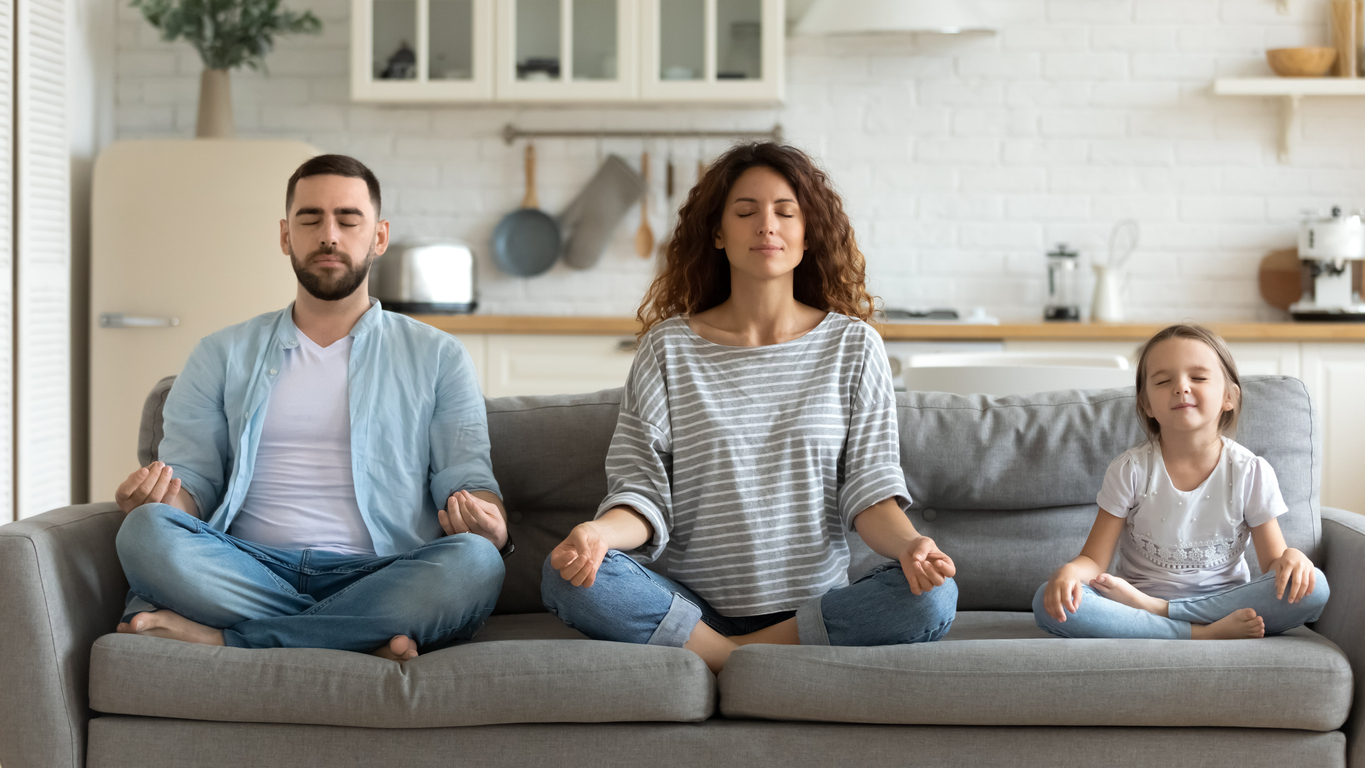During COVID-19, anxiety can run high. But there are effective coping techniques that you can build into your routine to help you manage the stress.
One of these is meditation.
The U.S. National Institutes of Health has found that meditation can help improve anxiety and depression, as well as other health issues like high blood pressure, IBS, or insomnia. The practice itself is a mind-body exercise that has utility in promoting calmness and relaxation, mental health balance and wellness, and “enhancing overall health and well-being.”
While there are many types of meditation, most have 4 key elements in common:
- A quiet location with few distractions
- A comfortable posture (i.e. sitting cross-legged, sitting in a chair, or lying down)
- A focus of attention (such as on your breath)
- An open mind (the ability to let distractions come and go naturally without judgment)
How to meditate:
Again, there are many forms of meditation. The below tips will help you launch a core mindfulness practice.
- Shift into a comfortable position, get any wiggles out, and then still your body.
- Consciously try to focus on your breath. Keep your attention on your inhale and exhale. As thoughts come, let them go without judging them or yourself for having them. Cultivating awareness of your thoughts is meditating.
- Continue to follow your breath for the duration of your practice. Setting a gentle-sounding timer can be helpful when you want to meditate for a certain amount of time. It helps you focus less on how much time has passed, and more on being present.
There’s no wrong way to meditate
Thoughts will likely pop into your mind, because that is the nature of thoughts. As you continue to practice, you will be better able to become aware of them and let them go rather than making them the focus of your attention.
When asked what small change people can easily make today to improve their long-term health, SteadyMD’s Dr. Seth Larsen replied,
“Meditate for at least 10 minutes daily. You already spend 5+ times that on social media, so use some of it to download a mediation app and you will notice a significant difference in your day-to-day function. Build the castle of your health on a solid foundation of stress management and you will go far.”
Recommended Meditation Apps:
Meditation can be a useful tool for coping with stress & anxiety
In the face of so much uncertainty, focusing on what you can do can be incredibly helpful for your peace of mind. Meditation, exercise, and other stress management practices are some of those things.
“Minimize your stress by focusing on the things you can control and adding daily meditative practices. This will literally improve everything about your health.”
– Dr. Seth Larsen
How long should you meditate for?
As short as the time it takes to close your eyes, inhale, and exhale; or as long as hours. The time frame of your meditation practice is up to you. If you’re hesitant about starting, we recommend just trying it for a few minutes and working your way up. Maybe today, you’ll practice for one minute; then 3 tomorrow; 5 the next day; then build up to a consistent practice of 10 minutes of meditation a day for a week. From there, you decide whether you want to lengthen or shorten your practice. It’s yours to customize.
What’s most important in terms of meditation’s effectiveness is consistency. So, if 20 minutes a day isn’t maintainable for you, do it for less. If 30 minute a day works best for you, then do that!
“Starting out with just 10-15 minutes of each per day can have profound effects, and gives you something great to build off of.”
– Dr. Seth Larsen
Meditation is for everyone
Some people may be hesitant to try meditation because they think it’s weird or question its effectiveness. However, the growing acceptance of this practice as an effective stress management tool and the related evidence in scientific studies suggest that it can be of great benefit to people’s mental and physical wellbeing. The NCCIH is currently investigating meditation’s impact on conditions like chronic pain, fibromyalgia, multiple sclerosis, and PTSD.
We recommend giving meditation a shot to see if it could help improve your overall sense of wellness and health.
*****
Here are some other tips from the CDC about how to cope with stress during COVID-19:
- Take breaks from watching, reading, or listening to news stories, including social media. Hearing about the pandemic repeatedly can be upsetting.
- Take care of your body.
- Take deep breaths, stretch, or meditate.
- Try to eat healthy, well-balanced meals.
- Exercise regularly & get plenty of sleep.
- Avoid alcohol and drugs.
- Make time to unwind. Try to do some other activities you enjoy.
- Connect with others. Talk with people you trust about your concerns and how you are feeling.
*****
For more information about how you can protect your mental health during COVID-19, check out:
https://www.steadymd.com/2020/03/30/mental-health-coping-during-covid-19-tips-from-licensed-therapist-dr-justin-ross/
*****
SteadyMD is a telehealth service built on trusting, long-term, collaborative relationships with a dedicated doctor, online – the same doctor every time. Today, from the comfort of your home, you can start a relationship with a primary care doctor. Check-in with that same doctor regularly and continue the conversation over the coming weeks and months.
We’d love to have you as a member. Get started today.
